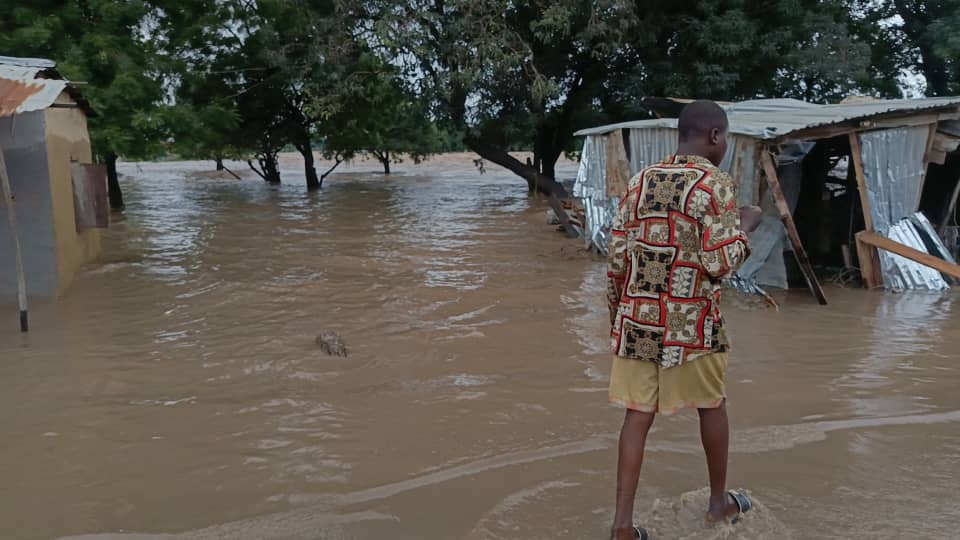The devastating floods that ravaged Mokwa Local Government Area in Niger State, Nigeria, prompted a significant humanitarian response from the nation’s banking sector. Driven by a sense of empathy and corporate responsibility, the Body of Bank Chief Executive Officers, under the leadership of United Bank for Africa Plc’s Group Managing Director, Mr. Oliver Alawuba, mobilized resources and coordinated a substantial donation of over N500 million in cash and relief materials to aid the flood victims. This intervention, while delayed, underscored the banking sector’s commitment to supporting communities grappling with the aftermath of the disaster, recognized as one of the most severe in the region’s recent history. The donation ceremony, held at the Niger State Government Liaison Office in Abuja, served as a platform to formally present the collected aid to the Niger State Government, signifying a collaborative effort to address the humanitarian crisis.
Mr. Alawuba, also Chairman of the Body of Bank CEOs, articulated the banking sector’s rationale for the intervention, emphasizing their dual role as financial institutions and stakeholders invested in the well-being of the communities they serve. He acknowledged the unfortunate delay in their response while reaffirming their unwavering dedication to providing support. The relief materials, which included essential provisions such as bags of rice, beverages, vegetable oil, and mattresses, were carefully selected to address the immediate needs of displaced families and those severely affected by the floods. The donation aimed to provide a measure of comfort and dignity amidst the widespread devastation and loss. The collective action by the banks reflected a deep understanding of the interconnectedness between the stability of the financial system and the overall welfare of communities across the country.
The donation ceremony was attended by prominent figures in the banking sector, including the Group Managing Directors of Zenith Bank and Keystone Bank, the Managing Director of TAJ Bank, and the Registrar of the Chartered Institute of Bankers of Nigeria. Their presence highlighted the collaborative nature of the initiative and the banking industry’s unified commitment to supporting disaster relief efforts. Governor Mohammed Umaru Bago of Niger State received the donations on behalf of the affected communities, expressing gratitude for the timely and compassionate intervention. He detailed the scale of the disaster, noting that Zenith Bank had independently contributed N300 million, UBA N200 million, and other banks provided additional financial support and relief items. This collective effort underscored the magnitude of the crisis and the significant contribution made by the banking sector.
Governor Bago provided context for the devastating floods, attributing them to a complex interplay of factors, including silted waterways and poorly managed hydropower infrastructure. He explained that Niger State, home to four major hydropower dams and over 90 water bodies, was particularly vulnerable to flooding due to a combination of climate-induced rainfall patterns and outdated infrastructure design. The consequences of the floods were far-reaching, displacing families, destroying livelihoods, and isolating entire communities. The governor acknowledged the exemplary nature of the banking sector’s corporate response, recognizing its crucial role in alleviating the suffering of the affected population.
The governor emphasized the need for collaborative planning and action between the public and private sectors to address the challenges posed by such disasters. He highlighted the importance of focusing on climate change mitigation and water infrastructure development as key areas for collaborative efforts. Governor Bago also encouraged the banks to extend their support to strategic initiatives such as irrigation projects and food export schemes. These projects, he argued, would contribute to boosting productivity and reducing the vulnerability of communities to flood risks. By investing in such initiatives, the banking sector could play a vital role in building long-term resilience and fostering sustainable development in the region.
The significant donation from the Nigerian banking sector to the flood victims in Mokwa demonstrates a commendable commitment to corporate social responsibility. This intervention highlights the important role that the private sector can play in disaster relief and recovery efforts, complementing government initiatives and strengthening the overall response. The banks’ proactive engagement signifies a shift towards a more collaborative approach to addressing societal challenges, recognizing the interconnectedness between business success and the well-being of the communities in which they operate. The focus on long-term solutions, including climate change mitigation and infrastructure development, underscores a forward-looking perspective, aiming to build greater resilience against future disasters and create a more sustainable future for the affected communities.














